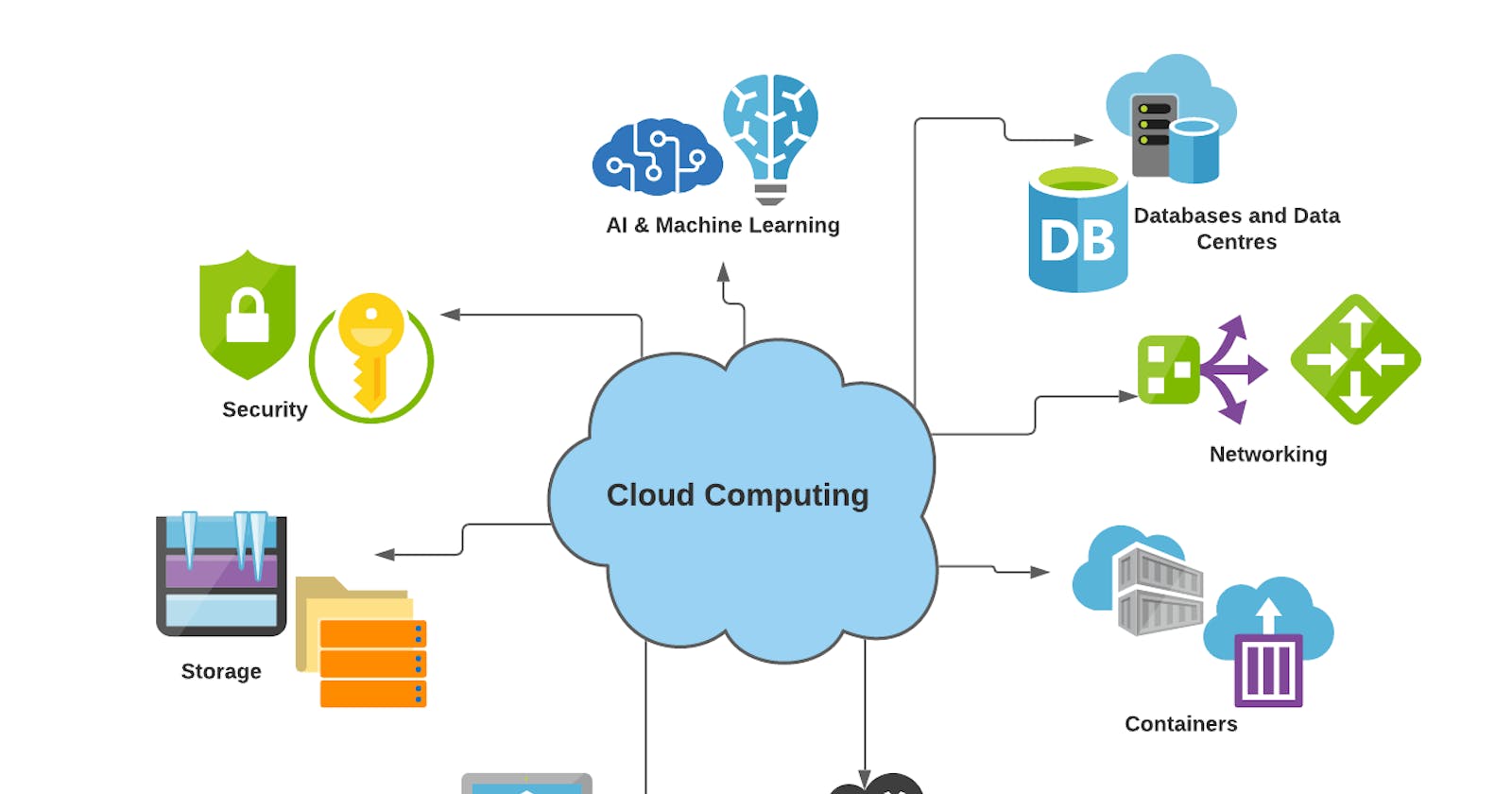Imagine a world where the sky is not just a canvas of stars, but a vast frontier of endless opportunities for both businesses and individuals. This is the realm of cloud computing. In this article, we'll demystify the concept of cloud computing, shedding light on what it truly means and how it has the potential to revolutionize the way we live and work.
What is Cloud Computing?
Cloud computing is a revolutionary technology that allows you to access and store your data and applications over the internet, instead of relying on physical servers or personal devices. It's like having your own virtual storage space in the sky, accessible from any device with an internet connection. This eliminates the need for costly hardware investments and provides you with the flexibility to scale your operations as needed.
One of the key features of cloud computing is its on-demand availability. You can access your files, run applications, and utilize computing resources whenever you need them, without the headache of managing physical infrastructure. This makes cloud computing ideal for businesses facing fluctuating demands or requiring immediate scalability.
Cloud computing can be categorized into three main types:
1. Software as a Service (SaaS)
SaaS offers cloud-based software applications accessed through a web browser. Say goodbye to installation and maintenance headaches. It's perfect for quickly deploying software solutions without the need for extensive IT infrastructure.
2. Platform as a Service (PaaS)
PaaS provides developers with a platform to build, test, and deploy applications without worrying about infrastructure management. For software development teams and independent developers, it's a dream come true, accelerating application development processes.
3. Infrastructure as a Service (IaaS)
IaaS offers virtualized computing resources, like virtual machines and storage, giving you control over your infrastructure while enjoying the scalability and flexibility of the cloud. Perfect for businesses with specific security or compliance requirements.
Advantages of Cloud Computing
The advantages of embracing cloud computing are numerous. Let's explore a few key benefits:
1. Cost Savings
Cloud computing lets businesses avoid upfront costs for physical servers. Instead, you pay for the resources you actually use, making it cost-effective, especially for small and medium-sized enterprises.
2. Scalability
Easily scale your computing resources up or down based on your needs. This flexibility allows you to respond quickly to changing market conditions and avoid unnecessary expenses during periods of low demand.
3. Improved Collaboration and Productivity
Teams can work on the same documents and projects in real-time, regardless of their physical location. This promotes collaboration, streamlines workflows, and boosts efficiency and productivity.
Debunking Common Misconceptions
Despite its many benefits, cloud computing is still surrounded by some misconceptions. Let's set the record straight:
1. Cloud Security
Misconception: The cloud is not secure. Reality: Cloud service providers invest heavily in security measures to protect your data. Advanced encryption techniques, regular backups, and strict access controls ensure the safety and privacy of your information.
2. Cloud Suitability
Misconception: The cloud is only for large businesses. Reality: Cloud computing offers significant benefits to small businesses and individuals. It provides affordable and accessible solutions that streamline operations and level the playing field.
Leading Cloud Computing Providers
The cloud computing industry is dominated by a few key players who provide robust and reliable services:
1. Amazon Web Services (AWS)
AWS, the pioneer in cloud computing, offers a wide range of services and has a vast global infrastructure.
2. Microsoft Azure
Known for seamless integration with Microsoft products and services, Microsoft Azure is a strong player in the field.
3. Google Cloud Platform
Google Cloud Platform offers a powerful and scalable infrastructure, backed by Google's expertise in data management and analytics.
Choose your provider carefully, considering factors like pricing, performance, security, and support that align with your specific needs.
Addressing Security and Privacy Concerns
While cloud computing offers numerous benefits, security and privacy concerns are raised. However, cloud service providers take security seriously. Key security features include encryption, strict access controls, regular audits, and certifications.
Cloud Computing Cost Considerations
When considering cloud computing, cost is a critical factor. Cloud providers typically offer a pay-as-you-go model, eliminating upfront investments. Monitor usage and optimize resource allocation to avoid unnecessary costs. Factors impacting costs include data transfer fees, storage costs, and additional services or features.
How to Choose the Right Cloud Computing Provider
Choosing the right cloud computing provider is crucial. Consider these factors:
Reliability and Uptime: Ensure high availability and minimal downtime.
Scalability and Flexibility: Accommodate future growth and scalability needs.
Security and Compliance: Evaluate data protection and encryption practices.
Performance and Latency: Confirm the provider can meet your performance requirements.
Support and Customer Service: Choose a provider with responsive and knowledgeable customer support.
Success Stories in Cloud Computing
Let's look at successful cloud computing implementations to see its real-world impact:
1. Netflix
Netflix migrated to the cloud to scale rapidly, delivering high-quality content to millions of subscribers.
2. Slack
Slack relies on the cloud to provide seamless communication and file sharing capabilities, ensuring reliable access to user files and conversations.
3. Airbnb
Airbnb manages its vast database of listings and bookings using the cloud, providing a smooth experience for hosts and guests.
These case studies highlight the transformative power of cloud computing and its ability to scale, innovate, and deliver exceptional experiences to customers.
The Future of Cloud Computing
In this digital era, understanding cloud computing is crucial. Whether you're a small business owner looking to streamline operations or an individual seeking seamless access to your files, the cloud can be a game-changer.
As the cloud computing industry evolves, we can expect advancements in security, performance, and cost-effectiveness. The future holds exciting opportunities as cloud computing becomes an integral part of our lives, transforming the way we work and interact with technology.
Embrace the cloud, and let it empower you to reach for the stars.
Note: This article provides information for reference purposes. Consult with professionals or experts when making decisions related to cloud computing and technology implementations.

